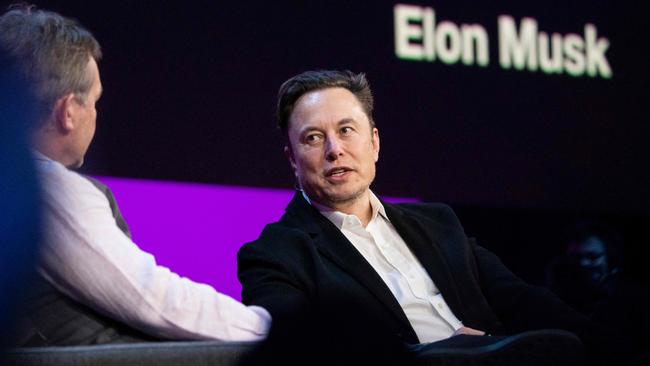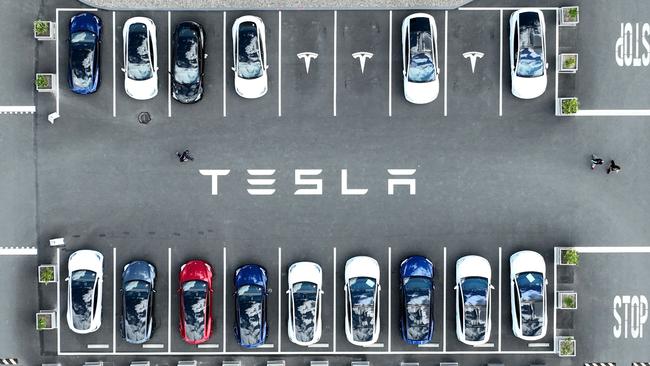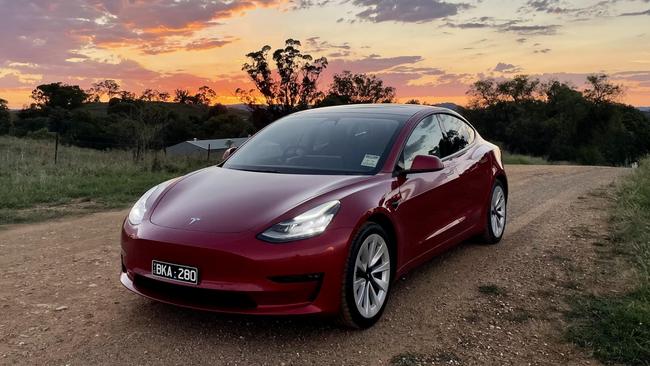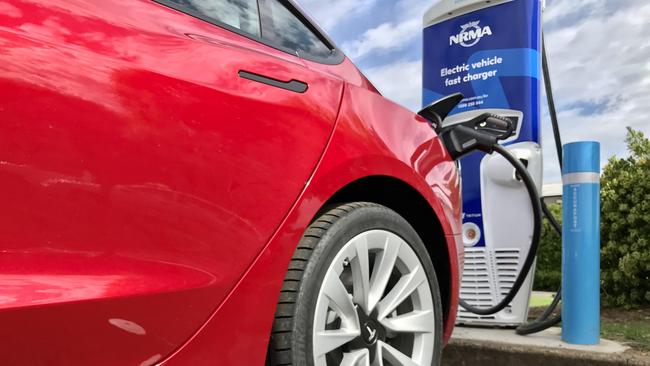
“Do you like minting money? Well the lithium business is for you,” said Elon Musk, chief executive of electric-vehicle giant Tesla.
“I’d encourage entrepreneurs out there looking for opportunities to get into the lithium business. The (profit) margins right now are practically software margins,” he added – in some cases they are at 90 per cent with years of demand coming.
Tight supply is the biggest limiting factor in ramping up Tesla’s global production, and this is going to get more pronounced as the hi-tech carmaker puts in place ambitious targets to increase production by 50 per cent a year – this translates to 17 million cars by the end of the decade.
Lithium is the key ingredient in powerful batteries used in Tesla’s and every other electric vehicle. The silvery-white alkali metal is in hot demand as every major carmaker scrambles to lock in supply.
They are competing against industrial battery makers that also need lithium to produce the energy storage as global electricity markets rush to green energy. Australia, as a major producer, is the best placed to capitalise on record prices.
Musk, whose personal fortune is valued at $US264bn ($354bn), was speaking on a quarterly analyst call as the electric-vehicle maker he co-founded released another set of blockbuster quarterly numbers.
While there is plenty of lithium in the ground, the process of extracting and refining the soft metal is highly complex, adding to the scarcity of lithium hydroxide or lithium carbonate needed for the battery cell.
Musk said Tesla would need to do more to help the industry, suggesting that he was prepared to underwrite the development of more mines, or at least the processing.
Ken Brinsden, managing director of Australia’s biggest pure-play lithium producer, Pilbara Minerals, says the market started taking off about 18 months ago. It was then that demand from China started rising, while carmakers around the world were scrambling to lock in supply as they ramped up plans to move to electric.

He says new supply can’t just be turned on and turned off, with projects often taking years to build. Excess demand is pulling on a “very tight market”, which is driving lithium to record prices.
“The industry didn’t have enough time to respond to growth given where EV sales have got to,” Brinsden said.
Brinsden gives credit to Musk, who “has been ahead of the curve in almost every respect” in securing lithium supply compared to other major players that are starting from “a long way behind”, particularly when it comes to helping to underwrite mine development.
Brinsden, who has seen shares in Perth-based Pilbara surge more than 150 per cent over the past year, said he was “very optimistic” about the major role Australia could play in lithium development as well as the opportunity to add value here by processing raw material into refined products.

Tesla’s first-quarter sales came in at a record $US18.6bn, up 81 per cent from the first quarter a year ago. Pre-tax earnings of $US5.02bn surged from $US1.84bn in the same period a year earlier. More than 305,400 Teslas were produced during the quarter, up 69 per cent from the previous year.
Given supply-chain constraints, there are few major manufacturers in the world, let alone car producers, able to scale up anything like that. Musk expects Tesla to make 1.5 million cars this calendar year.
Remember Tesla, which is capitalised at $US1 trillion, is worth more than the combined value of the next 10 largest carmakers in the world, including Toyota, Ford, Volkswagen and Mercedes. Investors are betting on the company’s first mover advantage in electric-vehicles as the world looks to decarbonise.
Musk has been in the headlines in the past week for his brazen $US43bn bid for social media company Twitter. To the relief of Wall Street, Musk didn’t address the bid in the call, which would have suggested that battle is occupying his time rather than getting his cars out of the factories. The question over the Twitter bid remains funding, with Tesla shares coming under pressure amid fears Musk would be forced to dump some of his stake in his car company to fund the bid.
The Tesla-Musk quarterly briefings are important for anyone in business trying to make things or battling global supply chains. They also give some insight into what’s coming down the line from a global executive who has been ahead of the curve in business, building the world’s most valuable car company from the ground up.
Inflation is still driving across the US, with Musk claiming official numbers that point to 40-year highs “actually understate the true nature of inflation”. In some cases, his suppliers are asking for 30 per cent price increases to cover their own cost hikes.
Musk has also pushed through a round of price rises in recent months. In Australia, the price for flagship Tesla Model 3 has increased by between $3000 and $5000. This takes the entry-level Model 3 to just under $64,000.
He says the price rises today are designed to cover inflation over the next 12 months. Given the company has an extended waitlist for vehicles, it helps absorbs costs.
“It may seem like maybe we’re being unreasonable about increasing the prices of our vehicles, given that we had record profitability this quarter, but the waitlist for vehicles is quite long and for some of the vehicles that people will order, the wait list extends into next year,” he said.
The prices of vehicles ordered now are really anticipating a supplier and logistics cost growth that Tesla believes will happen over the next six to 12 months.
“That’s why we have the price increases because a car ordered today would in some cases arrive a year from now,” Musk said.
‘Car crash’
One area poised for a shake-up is the sleepy world of insurance. The big Australian players Insurance Australia Group and AAMI-owner Suncorp will be watching with Tesla quietly rolling out its “real time” insurance product across the US.
It has been the holy grail for insurers to get behind the wheel of drivers and the tech-heavy Tesla is already doing this. Just like your smartphone is sucking up data about where you are and what you are doing, a brand new Tesla is doing exactly the same thing. The insurance product means the electric-vehicle maker is the second-biggest insurer of Teslas in the company’s home state of Texas.

Musk says the micro-detail of driving habits delivers considerable savings on premiums, while the real-time data generated by any crash dramatically speeds up the claims process.
If this becomes a growth area, established car producers are likely to also consider entering the market to take advantage of the data their own next generation of cars are producing.
Musk points out that the real-time driving score has started to change driver behaviour. The safer the driving behaviour, the lower the insurance premium – and this is happening now.
Real-time insurance is also a feedback loop for Tesla.
“We can see if there is a crash – large or small. We see exactly what caused it and you can think about how we can change the design of the car or the software in order to minimise the possibility of that accident, because most accidents are minor. [We can consider] how to have those accidents occur less frequently,” Musk said.
The aspiration would be to have a same-day repair after the crash, Musk added. This was a “night and day difference” compared to having to wait for a month while insurance claims were settled and figured out.
“It’s bigger than just economics. We’re trying to do the right thing here for our customers, save people money and make your lives a little safer,” he said.
johnstone@theaustralian.com.au





The world’s richest man has just one word for budding entrepreneurs: lithium